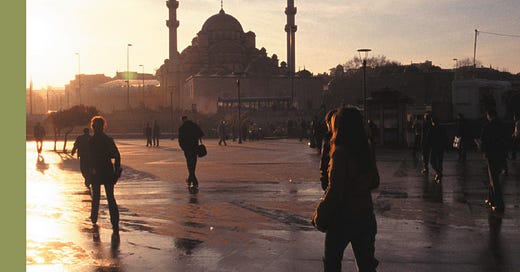Out in August!
Thank you for joining me today. I am grateful to those who have become paid subscribers. I need some more to enable me to continue cutting through the fog of kinetic and information wars and offer fact-based analysis. No doubt, you will have noticed that The Turbulent World has no sponsors and no advertisers. This guarantees the column and podcast’s independence. Instead, The Turbulent World depends on the support of its readers and listeners to cover the cost of producing the column and podcast. You can contribute by clicking on the subscription button and choosing one of the subscription options.
Lost in the Middle Eastern fog of war is a struggle that is as much about geopolitics as it is about shaping future generations in a swath of land that stretches from the Gulf states and the battlefields of Gaza and Lebanon to Houthi schools in Yemen and jihadist seminaries in Indonesia.
It’s a rivalry of competing worldviews in textbooks designed to shape education in the 21st century in Muslim lands. The players run the gamut from jihadists and religious militants to autocracies that propagate a socially more tolerant but politically repressive interpretation of Islam.
The Middle East, conditioned by the Gaza war and geopolitical rivalries, is the focal point of competing approaches toward education.
Even so, a comparison of changes in textbooks in Houthi-controlled parts of Yemen and Indonesian seminaries run by Jemaah Islamiyah, an Indonesian Islamist dedicated to the establishment of an Islamic state in Southeast Asia reveals stark differences in militant ranks.
Keep reading with a 7-day free trial
Subscribe to The Turbulent World with James M. Dorsey to keep reading this post and get 7 days of free access to the full post archives.



